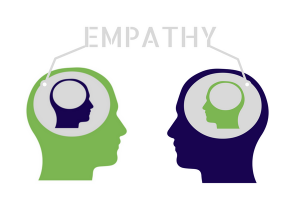How to Stop Feeling Overwhelmed
 Feeling overwhelmed? You’re not alone. A whopping 44 percent of Americans feel more stressed than they did five years ago. In the past 20 years, our society has seen a 60 percent increase in productivity, and to no great surprise, a majority of American adults are reporting that job-related issues are their main source of stress. According to one study, more than half of employees are stressed to the point of feeling extremely fatigued and out of control. Yet, it isn’t just our professional lives overwhelming us; it’s our entire lifestyle. New technology, access and the ease of communication adds an extra pressure to do more. A wait in the coffee shop line is now an opportunity to catch up on email. Those precious minutes when our toddler naps are minutes spent logging on, checking balances and paying bills. Being busy is nothing new, but the fast-paced, stress-inducing rise of the modern multitasker is becoming increasingly dangerous.
Feeling overwhelmed? You’re not alone. A whopping 44 percent of Americans feel more stressed than they did five years ago. In the past 20 years, our society has seen a 60 percent increase in productivity, and to no great surprise, a majority of American adults are reporting that job-related issues are their main source of stress. According to one study, more than half of employees are stressed to the point of feeling extremely fatigued and out of control. Yet, it isn’t just our professional lives overwhelming us; it’s our entire lifestyle. New technology, access and the ease of communication adds an extra pressure to do more. A wait in the coffee shop line is now an opportunity to catch up on email. Those precious minutes when our toddler naps are minutes spent logging on, checking balances and paying bills. Being busy is nothing new, but the fast-paced, stress-inducing rise of the modern multitasker is becoming increasingly dangerous.
Millions of Americans have reached unhealthy levels of stress. Stress weakens our immune system and contributes to high blood pressure, heart disease, strokes and other illnesses. Between 60 and 90 percent of doctor’s visits are stress-related. Our response to feeling overwhelmed, unfortunately, is often to try to get more done, adding more to do’s to our to-do list and feeling more stress. The results are the opposite of effective. Research has suggested that only 2 percent of people can multitask successfully. In fact, according to the Harvard Business Review, our efforts to do more than one thing at once can actually lessen our productivity by about 40 percent and lower our IQ by 10 points.
Trying to do it all is not the solution and neither is worrying ourselves about how much we stress. The solution is to find interior tools and techniques that can help us to cope with feeling overwhelmed. Here are four essential psychological practices we can implement to alleviate stress and enhance our overall resilience and well-being… all while actually being our most productive.
Enhance Hardiness
According to a fascinating field of research, the biggest predictor of how well we will do in all areas of our lives isn’t how much money we have or even how many obstacles we encounter. What determines our fulfilment and success is instead a matter of how hardy we are. Hardiness is a form of resilience, a way in which we handle life’s challenges. In his 35 years of research, Dr. Salvatore Maddi, founder of The Hardiness Institute, has found that there are specific characteristics people can develop in order to become more emotionally resilient or “hardy.” By learning and enhancing the traits of hardiness, we are far better able to cope with feeling overwhelmed and much less likely to feel overcome by stress. We are better equipped to handle unexpected hurdles and, therefore, more likely to accomplish goals.
Dr. Maddi describes three fundamental elements to being hardy: commitment, control and challenge (the three C’s).
- Challenge refers to seeing problems as challenges as opposed to overwhelming threats.
- Control describes handling tough situations by feeling powerful and taking action.
- Commitment means staying motivated and committed even through difficult times, pushing through obstacles with intention.
In general, hardy individuals view change as a positive challenge, are open to new ideas, feel confident and capable and problem solve rather than avoid stress.
Read more about hardiness.
Practice Mindfulness
By now, you’ve probably heard the hype about mindfulness. However, you may feel your life has been too hectic or too stressful to take the time to actually practice it. Yet, mindfulness doesn’t have to be just another thing we have to schedule in to our calendar; it can become a state of being. “What mindfulness really is is stress reduction,” said Dr. Donna Rockwell. “The sympathetic nervous system [is] what produces the cortisol. Then there’s the parasympathetic nervous system, which produces DHEA and all the good hormones that give us a flood feeling of peace and tranquility and all that’s right. So what meditation really does is help us stimulate the parasympathetic nervous system versus the sympathetic nervous system, so we’re more in a state of healthfulness all the time and not in a state of stress.”
Mindfulness is one of the most scientifically sound methods for living in the moment and coping with what life throws at us. Mindfulness-Based Stress Reduction, which involves the practice of mindfulness meditation, has been proven to reduce stress and exhaustion and to increase psychological well-being, self-esteem and quality of life. In addition to reducing symptoms of depression and anxiety, MBSR has had beneficial effects on stress-related medical conditions and can play a role in reducing physical pain. Some studies have shown it can even lower blood pressure.
Read more about mindfulness.
Exercise Self-compassion
New research by Dr. Kristen Neff points out the benefits of self-compassion versus self-esteem in enhancing one’s psychological well-being. Practicing self-compassion involves three main components: (a) self-kindness (b) common humanity (c) mindfulness. In addition to helping people feel calmer, more secure and centered, it equips individuals with a healthier attitude toward themselves when things go wrong.
“We can’t always get what we want. We can’t always be who we want to be. When this reality is denied or resisted, suffering arises in the form of stress, frustration and self-criticism. When this reality is accepted with benevolence, however, we generate positive emotions of kindness and care that help us cope,” said Dr. Kristen Neff.
In relation to their accomplishments, Dr. Neff states that “Self-compassionate people aim just as high, but also recognize and accept that they can’t always reach their goals.” In a chapter she wrote for the book Compassion and Wisdom in Psychotherapy Dr. Neff listed the following benefits of self-compassion in relation to motivation and goal accomplishment:
- Less engagement in rumination
- Greater emotional coping skills
- Greater ability to repair negative emotional states
- Increased feelings of autonomy and competence
- Enhanced motivation
- Greater personal initiative; the desire to reach one’s full potential
- Less motivational anxiety
- Less engagement in self-handicapping behaviors
- Positive association with mastery goals—the intrinsic motivation to learn and grow
Read more about self-compassion.
Quiet Your Inner Critic
Feelings of stress don’t just come from outside circumstances. They come from what we are telling ourselves about our circumstances. In other words, how we perceive and judge our experiences can be as influential as the experience itself. When we feel overwhelmed, we are usually having a series of negative or critical thoughts commentating on whatever is going on. If we have a lot to do, we may experience a “critical inner voice” that tells us, “You can’t get everything done. You’re going to mess up. You’re under too much pressure. You can’t handle it.”
It’s helpful to understand that a lot of our stress is perpetuated by this inner critic. Though we experience this critic as we would any of our thoughts, it is the voice of an internal enemy that leads us to self-sabotage and undermines our own abilities. These thoughts affect our actions, causing increased levels of stress and demoralization. We can feel a lot less overwhelmed when we start to identify and actively ignore this inner critic.
We can start by noticing when these thoughts arise. What types of situations trigger this destructive coach? Does it come up when we feel threatened at work? When we feel pressure from a romantic partner? When our kids are acting up? When we can’t get organized? When we don’t sleep? When a relative visits? When a friend bails on us?
Once we notice what events trigger our mood or attitude to turn negative, we can identify the actual thoughts we are telling ourselves at those moments of stress. It’s helpful to write down these “attacks” or verbalize them as “you” statements. That way, we separate the thoughts from our own point of view, as if someone were talking to us. Some examples of these thoughts could be:
You don’t know what you’re doing.
You’re going to fail.
You can’t handle this.
No one understands you.
You’re incompetent.
Sometimes, the voice can be tricky and can sound self-soothing. It can coax us to feel victimized or engage in self-destructive or self-limiting behavior. For example, it may say, “No one appreciates you. You should just depend on yourself. Don’t trust anyone else to help you. Keep your distance.” Listening to this voice may then lead you to engage in more isolating behaviors, making you feel even more overwhelmed and unsupported.
Once we identify the negative thoughts we experience, we can start to respond from a more compassionate, realistic viewpoint. Think about how a friend would react to these statements, then write this response next to where you wrote down your critical inner voice attack. For example, if your self-critical thought was, “You’re so stupid,” you may write, “I may struggle in some areas, but I am a capable person with a lot to offer. I am not stupid and have the power to get better at the things I want to improve.” The idea isn’t to boost yourself up with false praise. It is simply to exercise a more honest and compassionate attitude toward yourself.
When we stand up to our inner critic, we are able to function in a more adult mode. No longer do we feel victimized, powerless or self-hating. Instead, we can embrace a calmer, more realistic attitude toward what we are setting out to accomplish. We can have more patience with ourselves and be more open to real ways we may want to change or evolve. We will feel far more empowered and less overwhelmed. We clear a path inside ourselves to live a hardier, more mindful and self-compassionate existence.
Learn more about the critical inner voice.
If you suffer from anxiety, visit our Anxiety page or the following helpful resources:
National Institute of Mental Health -Anxiety
WebMD – Anxiety
Anxiety Disorders Association of America
Mayo Clinic – Anxiety
Insight Journal
GET HELP:
IF YOU OR SOMEONE YOU KNOW IS IN CRISIS OR IN NEED OF IMMEDIATE HELP, CALL 1-800-273-TALK (8255).










Leave a Reply